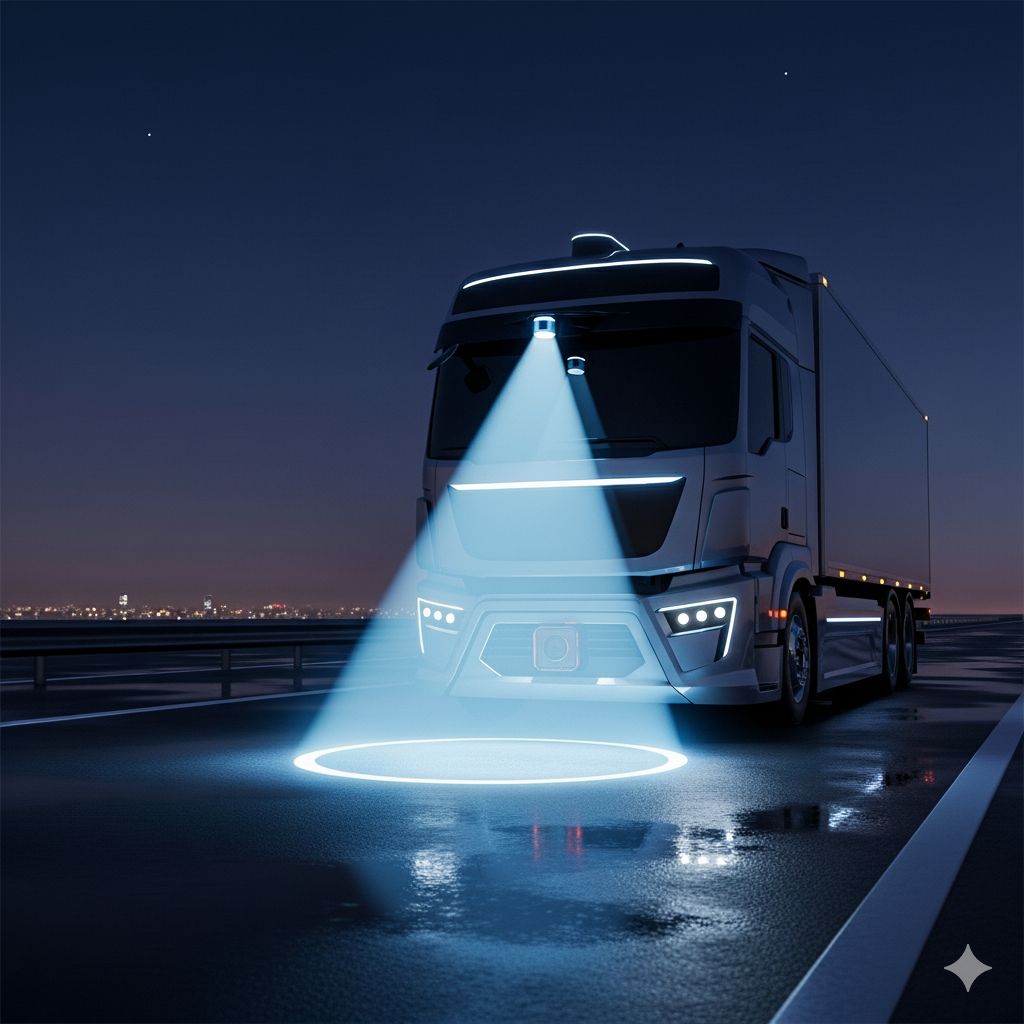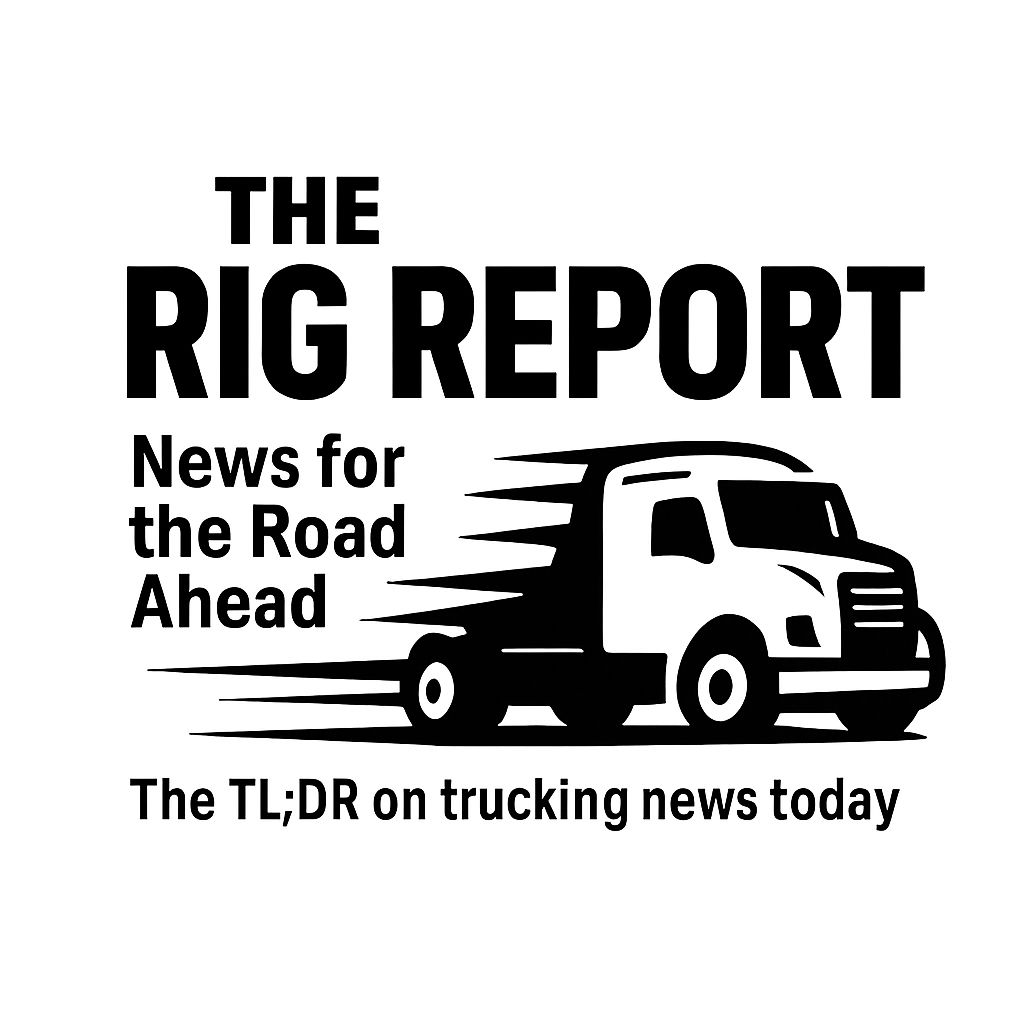
1. Autonomous Trucking Development Update
Autonomous trucks are advancing to market more quickly than self-driving cars. In a recent development, Aurora Innovation has begun operating driverless trucks on routes between Texas and Arizona, hauling customer loads at night. The Aurora Driver system uses proprietary lidar technology to see over 450 meters ahead, allowing it to spot and react to pedestrians up to 11 seconds sooner than human drivers at night. This progress has been hailed as a major breakthrough for the industry, as it addresses issues of fatigue and low visibility that contribute to nighttime accidents. Looking ahead, the autonomous vehicle firm Bot Auto is targeting driverless deliveries in 2025, and Kodiak Robotics has partnered with Roush to upgrade trucks with autonomous technology to support a customer's 24/7 operations.
Learn More: Aurora's commercial driverless trucking update

2. FMCSA Announces Removal of Three ELDs from Registered List
The Federal Motor Carrier Safety Administration (FMCSA) has removed three more electronic logging devices (ELDs) from its list of registered devices. The removals, which were effective on September 4, 2025, are for TT ELD PT30, ELOG42, and RENAISSANCE ELD, as the companies failed to meet the minimum requirements. Motor carriers have up to 60 days to replace the revoked ELDs with compliant devices from the Registered Devices list before November 3, 2025. After that date, motor carriers who continue to use the revoked devices will be considered as operating without an ELD, which could result in an out-of-service order.
Learn More: FMCSA's official press release on ELD removals
3. New FMCSA Rule Clarifies ELD Manual and DVIR Requirements
In a move to reduce unnecessary paperwork and streamline compliance, the FMCSA has proposed a new rule that would eliminate the requirement for drivers to carry a physical ELD user manual in their cabs. The proposal also clarifies that the FMCSA will accept electronic Daily Vehicle Inspection Reports (DVIRs), no longer requiring paper copies. The public comment period for this proposal ended in July, and the FMCSA is now reviewing feedback to decide whether to adopt, revise, or reject the rule.
Learn More: Full details on the proposed FMCSA rule change
4. DOT Announces Nation

Nationwide Audit of Non-Domiciled CDLs
The U.S. Department of Transportation (DOT) has launched a nationwide audit into state practices for issuing non-domiciled Commercial Driver's Licenses (CDLs). The audit, which was a directive from President Trump in April 2025, aims to address the issue of unqualified individuals obtaining licenses and potentially endangering road safety. The audit will closely scrutinize state protocols to eliminate misuse and reinforce federal safety standards.
Learn More: Article on the DOT audit and its implications
5. U.S. Truck Tonnage Index Rises in July
The American Trucking Associations (ATA) For-Hire Truck Tonnage Index rose by 0.6% in July, a positive sign following a 0.7% decline in June. While the index has been in a tight range since March, this sequential increase is a positive indicator for the industry. According to ATA Chief Economist Bob Costello, mixed economic drivers were at play, with housing starts and retail sales up, while manufacturing output was flat to down. The index is a key barometer of the U.S. economy, as trucking represents 72.7% of all domestic freight tonnage.
6. Freight and Fuel Price Year-over-Year Comparison
Here is a recommended way to display the freight and fuel prices:
Freight Rates & Fuel Prices: Year-over-Year Comparison (August 2024 vs. August 2025)
Category | August 2024 Average | August 2025 Average | Year-over-Year Change |
Van Spot Rates | $2.01/mile | $2.03/mile | +1.0% |
Reefer Spot Rates | $2.40/mile | $2.39/mile | -0.4% |
Flatbed Spot Rates | $2.51/mile | $2.50/mile | -0.4% |
Diesel Fuel Price | $3.68/gallon | $3.71/gallon | +0.7% |
Export to Sheets

7. Trimble Freight Marketplace Launches with P&G as First Customer
Trimble has launched its new AI-powered Freight Marketplace in North America, with Procter & Gamble (P&G) as its first major shipper customer. The digital platform is not a traditional load board but is designed to automate the entire bidding process, from negotiation to fulfillment, all within the online tool. It connects shippers, carriers, and brokers to streamline freight procurement and is especially useful for managing "mini bids," which are tailored for single lanes over a specific contract period. The platform also features an AI-powered verification process to check carrier identity and insurance details, providing enhanced security and replacing time-consuming manual checks.
8. Workhorse Group and Motiv Electric Trucks Announce Merger
Workhorse Group and Motiv Electric Trucks have entered into a definitive merger agreement to combine and create a leading North American medium-duty electric truck OEM. This all-stock transaction is designed to create a category leader with a broader product portfolio and stronger financial foundation. The merger is expected to combine Workhorse's manufacturing capabilities and national dealer network with Motiv's diverse product portfolio and fleet relationships. The transaction is anticipated to close in the fourth quarter of 2025.

9. New Electric Truck Maker, ZM Trucks, Launches in North America
ZM Trucks, a new electric truck manufacturer and a subsidiary of ZO Motors, has launched in North America with its U.S. headquarters and a new assembly facility in Fontana, California. The company plans to manufacture zero-emission commercial vehicles, including battery-electric and hydrogen fuel cell options. The new 210,000-square-foot facility is expected to produce up to 100,000 units annually.

10. Cybersecurity and Technology Concerns on the Rise
As the industry becomes more connected, cybersecurity is an increasing concern for trucking companies. According to recent data, transportation was the eighth most attacked sector in 2023. Freight fraud and cyber scams, including double brokering, carrier identity theft, and phishing attacks, cost the industry over $800 million in 2023. These scams often exploit outdated defenses and system vulnerabilities. To combat this, companies are investing in new technology to protect sensitive data.
